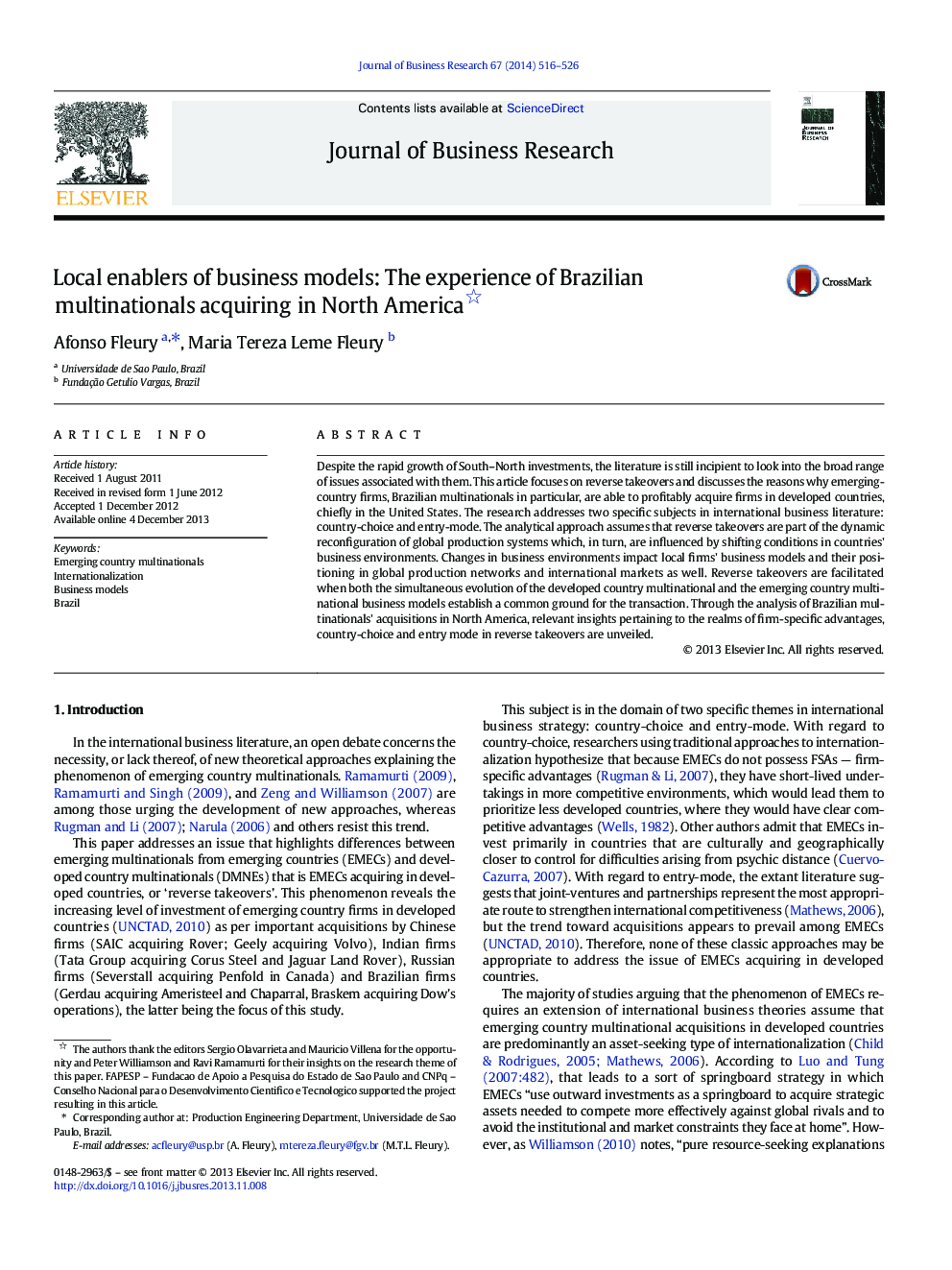| Article ID | Journal | Published Year | Pages | File Type |
|---|---|---|---|---|
| 1017557 | Journal of Business Research | 2014 | 11 Pages |
Despite the rapid growth of South–North investments, the literature is still incipient to look into the broad range of issues associated with them. This article focuses on reverse takeovers and discusses the reasons why emerging-country firms, Brazilian multinationals in particular, are able to profitably acquire firms in developed countries, chiefly in the United States. The research addresses two specific subjects in international business literature: country-choice and entry-mode. The analytical approach assumes that reverse takeovers are part of the dynamic reconfiguration of global production systems which, in turn, are influenced by shifting conditions in countries' business environments. Changes in business environments impact local firms' business models and their positioning in global production networks and international markets as well. Reverse takeovers are facilitated when both the simultaneous evolution of the developed country multinational and the emerging country multinational business models establish a common ground for the transaction. Through the analysis of Brazilian multinationals' acquisitions in North America, relevant insights pertaining to the realms of firm-specific advantages, country-choice and entry mode in reverse takeovers are unveiled.
